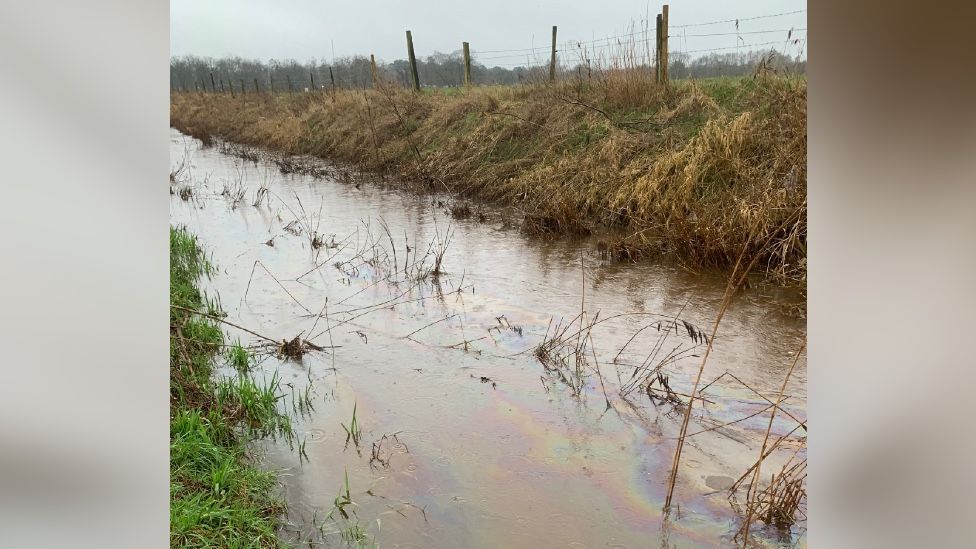Investigation launched after oil found in river

The Gaywood River Revival campaign group said it feared pollutants would cut off vital oxygen supplies to fish and contaminate the river bank for years to come
- Published
An investigation is under way after oil and other pollutants flowed into a rare chalk stream.
The Environment Agency has been analysing samples from the Gaywood River, near Bawsey, Norfolk, after an "oil sheen" was found on the water.
An absorbent boom has been placed downstream at the river to contain the flow of pollution.
A spokesman for Gaywood River Revival said: "This could have serious repercussions to the river's ecosystem."
'Oil, diesel or petrol'
The group, which campaigns to protect the waterway, said the pollution was entering the river over a "half-mile stretch" east of Bawsey Ruins.
"It could be oil, diesel or petrol and it is washing into the river, coating the surface with a film of oil that will cut off vital oxygen supplies to fish as well as contaminating the river banks and silt for years to come."
Officers from the Environment Agency visited the river last week and found an "oil sheen" on the water, according to the Local Democracy Reporting Service.
They took samples at the site to be sent off for laboratory analysis.
A spokeswoman said: "An absorbent boom was later deployed across the watercourse by our operations team. Further water samples were also taken downstream and sent for analysis.
"We believe we have identified potential sources of the oil and are continuing our investigations."
Rob Colwell, Liberal Democrat county councillor for Gaywood South, said he was frustrated more was not being done to protect the river.
“This is absolutely disgusting,” he said.
"It is not the first time there have been pollution events here. People want reassurance that the Environment Agency will take action. It is just awful."
Chalk streams are unique habitats with the majority of the 250 in the world found in southern England but they are under threat due to pollution and over-abstraction.
Follow East of England news on Facebook, external, Instagram, external and X, external. Got a story? Email eastofenglandnews@bbc.co.uk, external or WhatsApp us on 0800 169 1830
Related Topics
- Published9 January
- Published23 November 2023
- Published29 September 2023
- Published12 October 2023